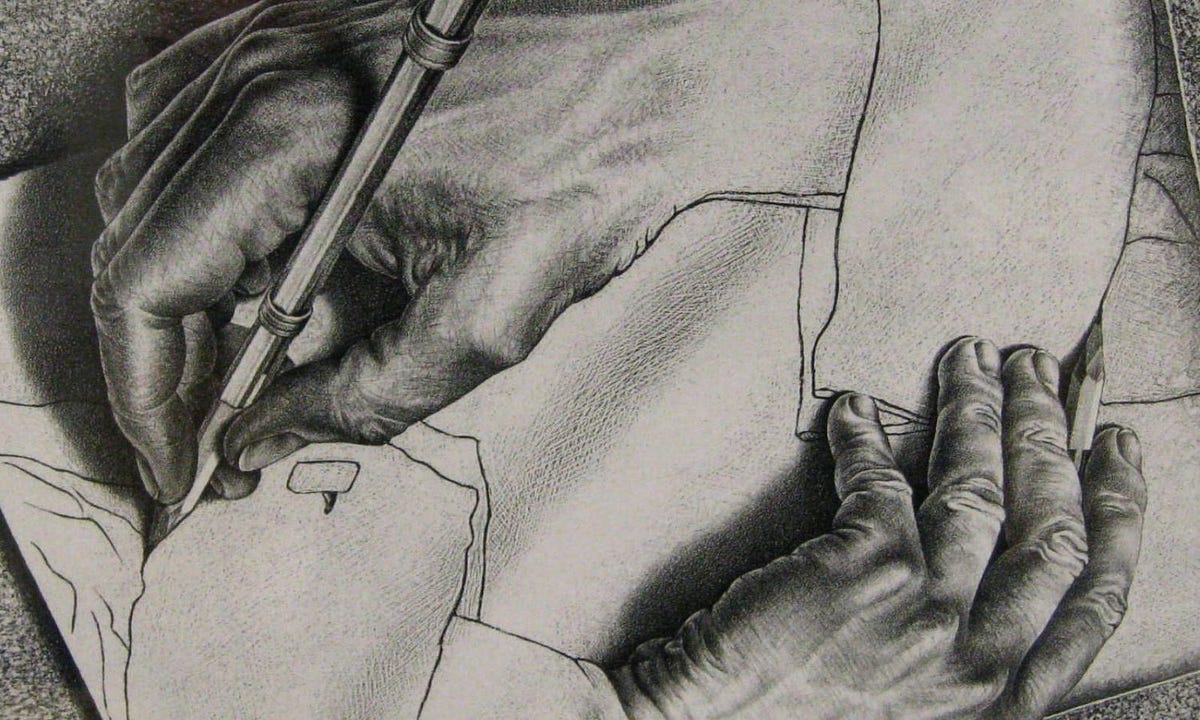What is the purpose of the Spiritual Exercises?
To encounter God more fully and completely than you dared to ever think possible
[#21] SPIR ITUAL EXERCISES
Which have as their purpose the conquest of self and the regulation of one's life in such a way that no decision is made under the influence of any inordinate attachment.1
I am convinced (like others) that the Spiritual Exercises are, first and foremost, about experiencing God's love for us and being freed to love him in return. Invited to know and encounter God more fully and completely than you ever dared think possible by someone who had found such a lifelong experience of God.
In his brevity of style, Ignatius makes clear his understanding of what The Spiritual Exercises are about - agency, choice and freedom. To be freed into abandonment to God, in which we are more able to choose God's will. From this flows many other purposes of the Exercises, such as discerning one's vocation and the purposes for which God created us.
Autopoesis: Self Creation
The condition of the modern self is many things. At this cultural moment, it can be described as one of autopoiesis, i.e. self-creation - where the freedom to express and create ourselves around our deepest desires and passions is the purpose of life. The modern self seeks to create ex nihilo, attached to and abandoned to being true to oneself, where the source of self is whatever we desire and will it to be.
It is love that generates the formational forces of our desires and passions. We are what we love, and what we do creates and shapes what we love. The epitome of the modern self has learned to love itself and its self-creation.
The Spiritual Exercises operate at this deepest level of self and identity and are part of their genius. Desire and imagination are indeed the forces that determine what we choose and act around for the creation of our lives. The Spiritual Exercises are about becoming free by exploring what we desire, with our imagination, into a different self. One that is God created instead of self-created. To discover that God is God and we are not.
For Ignatius to encounter God was to exchange the very ground of his being. To become God-made, not self-made. To experience and know we are loved into existence by God and to participate in that love.
As we go through life, we all have attachments to something generated by our loves and desires, pains and sufferings. The only real choice we have to make is what those attachments are and will continue to be. For Ignatius, real freedom was to become abandoned to God, i.e. our attachment to God to become the principal one that orders all our others and thereby brings true freedom to us from our disordered attachments.
Finding your own encounter
Ignatius was so wonderfully obsessed with God, deeply and extensively in love with Him. He distilled thousands of hours from helping others find freedom in their encounters with God into The Spiritual Exercises so that others might find the same.
My experience of God through the Exercises led me to write a prayer that begins to express the love of God I experienced and the freedom to return myself to the Lord in love.
Abba Father. I want to apprehend more and more the love you have for me. Holy Spirit, kindle my desire to know the Father's love.
I beg you - grow my desire to know your love, for you to show me your love. So that I might then respond more and more to you.
Leave me restless until I have that love. Spirit of God interrupt my day and all I get caught up in. Remind me of the Father's love. If I have been far away, bring me back with just one thought towards my Abba.
I want to want to love Him more. I want to love him as much as I possibly could in this life. Let there be no level of His intended love kept from me and that I do not experience and know.
Even more, exceed the limits of my abilities to perceive his love and love him in return. Let me love him more than anyone ever has. For love so amazing, so divine demands my soul, my life, my all.
The Spiritual Exercises are about finding your own encounter with God in the way God would have you experience - not mine nor Ignatius’s.





